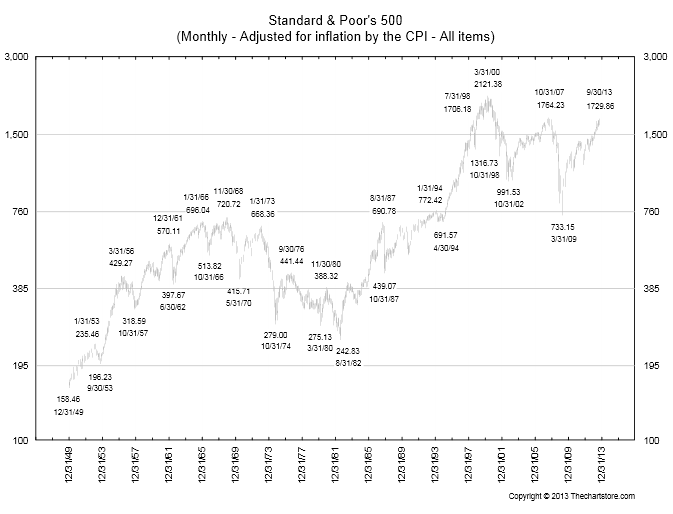Market cycles will generally start at a trough, run to a peak, then a new cycle starts at a peak and runs to a trough.
What you are talking about is trying to make money on short-term trades within one of those cycles. That isn't what happens to the majority though.
Look at this chart again. There are 15-20 year cycles where its good to buy stocks and easy to make money in stocks, and 15-20 year cycles where it isn't so good. 1949-1968 good. 1968-1982, not good. 1982 - 2000 good. 2000 - 201? not good.
Sure within those cycles, there are buying opportunities. But from a long term perspective, losing money on average for 15 years is something few people can afford.
The thing is, these cycles make up a larger cycle that represent spring, summer, autumn, and winter. The cycle we're in now, 2000-201x, is winter.
Everything we see that we think is some new economic problem has happened before. The market blowoff and bubble of 2000 was predicted and explained by someone who died 65 years before it happened.
The current winter should be debt repudiation, but that hasn't been allowed to happen. They've merely extended the winter cycle by preventing elimination of bad debt; that still has to happen.
We will see a new low on the markets in constant-value dollar terms before this is over.




